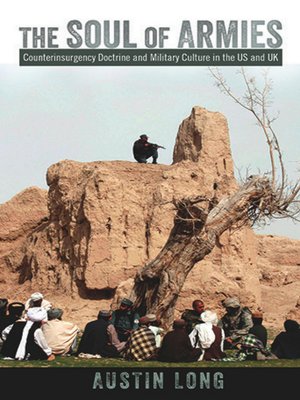The Soul of Armies
ebook ∣ Counterinsurgency Doctrine and Military Culture in the US and UK · Cornell Studies in Security Affairs
By Austin Long

Sign up to save your library
With an OverDrive account, you can save your favorite libraries for at-a-glance information about availability. Find out more about OverDrive accounts.
Find this title in Libby, the library reading app by OverDrive.



Search for a digital library with this title
Title found at these libraries:
| Library Name | Distance |
|---|---|
| Loading... |
For both the United States and United Kingdom counterinsurgency was a serious component of security policy during the Cold War and, along with counterterrorism, has been the greatest security challenge after September 11, 2001. In The Soul of Armies, Austin Long compares and contrasts counterinsurgency operations during the Cold War and in recent years by three organizations: the US Army, the US Marine Corps, and the British Army.
Long argues that the formative experiences of these three organizations as they professionalized in the nineteenth century has produced distinctive organizational cultures that shape operations. Combining archival research on counterinsurgency campaigns in Vietnam and Kenya with the author's personal experience as a civilian advisor to the military in Iraq and Afghanistan, The Soul of Armies demonstrates that the US Army has persistently conducted counterinsurgency operations in a very different way from either the US Marine Corps or the British Army. These differences in conduct have serious consequences, affecting the likelihood of success, the potential for civilian casualties and collateral damage, and the ability to effectively support host nation governments. Long concludes counterinsurgency operations are at best only a partial explanation for success or failure.







